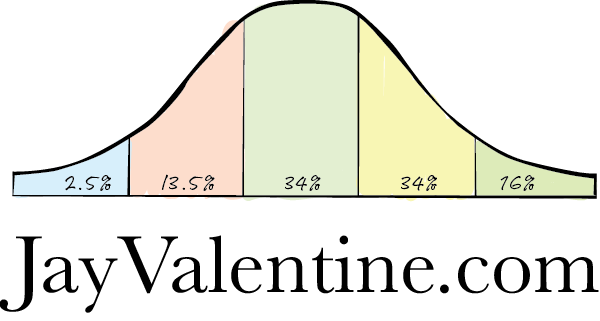
At the SXSW conference, we had dinner with the management team for a 7-year-old cloud company that believes it has now found its way. After 5 failed sales VPs, they are off to the races and know they are going to be massively successful.
Until the 6th sales VP encounters the “inherent contradiction.”
Our group included the Sales SVP of a $40 billion telco, the partner for a Big 6 accounting/consulting firm, the CEO of an Austin IoT company and the VP of Alliances for one of the world’s top database firms. I was there because they wanted startup experience.
Very interesting dinner.
I did not know there were cloud firms 7 years ago but apparently there were. Here is a summary of our comments during and after the dinner:
If you have 5-6 failed sales VPs, there is always an inherent contradiction in the company causing launch failure. It may struggle by, it may attract third tier investors, it may eventually get sold and make the VC’s a small pot, but it is unlikely to ever be successful.
Why?
If the value prop works, even a sales monkey can sell it. If it does not work, only one sales VP in ten thousand could get it off the ground—and he or she is probably not the one you have.
Anyone can ride a rocket. When one looks at BladeLogic, Mercury, PTC, early Oracle, OpsWare, EMC, VMware and a score of other firms—they were at the right place at the right time and they did great. It was an order taker’s heaven where anyone could make big money just showing up. Any sales VP could be a star. It was selling into massive demand where all you needed was process, not brains, and you were successful.
How many of us know the hugely successful reps from well-regarded firms who went to startups and totally failed? I personally can count beyond two hands. Most of us at the dinner could as well.
It is now an industry truism that previous “hot company” sales success means zero at the new startup.
One of the cloud firm’s VPs, the head of Sales Engineering, said the same thing. His comment was: “We hired an OpsWare Sales VP. He brought in his team. He told us we needed killers. Well, after 18 months, they were gone. They did not sell a single deal.”
“We hired a new CEO, who hired a new Sales VP, who had been at PTC. And he brought in his team of super stars. 18 months later, he got fired and they all went somewhere else.”
“We have done this 5 times. Maybe it is not a VP of Sales problem.”
It cannot be a sales problem after 5 sales VPs. The reason is very clear. Anyone, a great or a total zero talent sales team can sell a product everyone wants to buy. Unfortunately, there are a lot of those out there who made a great name for themselves selling something everyone wanted to buy, and now make a stock in trade that they were the ones that made it happen.
That is never the case. Anyone can ride a rocket—remember America’s first “astronauts” were chimps. Russia’s first astronauts were dogs. They did not pilot a thing.
They were just along for the ride.
That takes us to the rest of the conversation. Why have 5 sales VPs failed? Clearly it was not competence? After all, they showed they could run a sales process at BladeLogic or PTC. They knew how to hire order takers, ambidextrous–taking orders with either hand.
Failure came from somewhere else—the inherent contradiction.
The inherent contradiction—if you remember your philosophy 101 class, is that gnarly, hidden-in-the-open thing that makes things not work at scale. It is never a secret. Everyone knows it but nobody talks about it.
For tech companies, there are several common inherent contradictions:
The market is not big enough.
We are ahead of the market. We cannot create demand that is not there.
We have a feature, not a product. We need to have other companies in every deal to make our product work.
Early adopters are all we are going to sell. After we get them, the rest of the market just has no interest.
The price point we need to succeed is not what the customer will pay—we are a “nice to have.”
These are common inherent contradictions we see with startups every day.
Sales VPs and their regional minions think they can solve these issues by flogging the sales force into success. Threats, weekly forecast meetings where reps make up anything to have something to say, then the QBR (quarterly business review) where most reps institutionalize this madness for demand that is not there.
Their almost universal solution is ”we need to align the messaging in the sales force.” Messaging is NEVER the problem after the third sales VP.
Typical sales VPs think this because it is all they have. A sales VP is not aligned with solving the inherent contradiction problem—he or she delivers process, execution and other verbs which have little or no effect in this situation. They bring in their pals from the last go-round.
Limping tech firms often spend 40% -70% of revenues on sales and marketing—thus publicly demonstrating there is no demand for their offering—this is always the sign of the inherent contradiction underneath that only increasing amounts of dilutive equity can cover for a few more quarters.
Why do otherwise bright, rational people think their problem—after 5 sales VPs, is execution or messaging?
Execution and messaging is all they know—so every problem has that as its solution. That is why “dead starts,” companies with 4 or more sales VPs in 7 years never get out of the dead zone. They just trade CEOs and VPs until they are acquired for scrap.
An ugly cap chart and angry board clouds out critical thinking.
This company is now on its E round. E is pretty deep in the alphabet and deep into dilution. Dilution means nobody makes any money unless two things happen. First the company has to be about as successful as Google. Probably not in the cards by an E round and more former sales VPs than a starting hockey squad. Second, can the 6th, 7th, sales VP really do something the others did not? Doubtful.
Since the company’s leadership cannot recognize that execution is NOT the problem, they are not going to ever achieve wealth. Ever.
What is interesting is when an outsider confronts the leadership, as we did at this dinner, with the fact that no amount of great execution will help them. We showed them their inherent contradiction would absolutely prohibit them from breaking out from a handful of early adopters.
They became visibly irritated. The CEO refused to consider this possibility and claimed he needed sales reps “who could sell a more complex solution.”
Why? Because he NEEDED for this to be the truth–or else he had no cards to play.
Embracing the truth made him come to terms that he was a sure loser—a loser in the equity side of the equation because if the inherent contradiction was growth constraint, he was dead meat.
He could not tell the board that hired him that the market was too small, that Amazon forestalled his growth, that he had only a feature, not a product. He could not confront the inherent contradiction that would forever be a fatal constraint on his growth.
He could not come up with some clever MBA-speak to get over that issue. He would attend every quarterly board meeting knowing that his best result was that failure might be forestalled one more quarter.
The problem had to be execution. It just had to be or he lost any value to the enterprise. If the problem is an inherent contradiction (constraint), there was nothing he could do about it. His diluted cap chart locked him into execution as the problem because proper execution, if he could pull it off, kept him alive. But if execution were not the solution, he had no cards left to play.
It was interesting to watch him—because while he vehemently denied an inherent contradiction, we could see he knew it was there and he knew he was really screwed. But he needed the gig—another really nasty inhibitor to critical thought.
If you really need the job because you have not built wealth, it makes you make stupid decisions.
Then there is the “loser debt.” Loser debt is the legacy of former reps and employees who tell every headhunter that this company is toxic, nobody can make any money there, that the product is not that great. In the connected society we have today, particularly Glassdoor.com, that reputation gets out there pretty fast and firm. Customers hear it. Talent stays away. The Bozo Explosion takes over (“A” players hire “A” players. “B” players hire “C” players) and since there are no “A” players, talent erodes making the execution play even more difficult.
There is no way to overcome an inherent contradiction through sales strategy, quarterly business reviews, sales process. In short, they are not sales problems—they are inherent to the product, market, business.
There is no reason these inherent contradictions should cause a company to fail—if its cap chart is healthy. It can be small, agile, highly profitable – if the owners run it, not the VCs.
Failure becomes inevitable because these firms took in private equity too early—thus the investors, usually third or fourth tier VCs, keep pushing the company where it cannot go.
As Herodotus said several thousand years ago: “There is no force great enough to compel inability.”
Thanks Herodotus—and no force can make up for a crappy product or a tiny market.
The CEO, brought in by the private equity investors, will say whatever they want him or her to say. The CEO is not going to tell VCs after 6 months, “well, the market is too small. This is just a nice-to-have, and your investment is basically screwed.”
Instead, the CEO will tell the investors whatever it takes to live another quarter. When failure comes, the VP of Sales gets fired. After the third VP of Sales, the CEO gets fired. Then the process starts again.
There is better way.
Skip all early private equity.
Sell your way to your early revenue. It takes a little longer, but you can make any inherent contradiction a small problem, not a fatal obstacle to wealth.
